HOW TO SUPPORT SOMEONE
WITH IBD
Everyone needs someone on their team
When someone you love tells you about their IBD (Irritable Bowel Disease), it can be a bit of a shock. You may not know how to react, what to say, or even what to do.
Guess what, YOU ARE NOT ALONE.
I can tell you from experience that living with IBD is no cakewalk and it can be hard to talk about sometimes. It can sometimes feel like we are all alone in a big city with nowhere to go and no one to talk to. Personally, I used to feel like it’s my condition and therefore feel like it is my sole responsibility to deal with it. Nobody wants to hear about my bathroom issues, debilitating stomach pain, or ugly outbursts.
However, I never got anywhere with this mindset.
It wasn’t until I finally opened up and made a call for help that I saw any sort of progress with my healing process. By enlisting the help of my closest family and friends, I realized that they were just as scared as I was and all they wanted to do was help me in any way they could. I didn’t know how to explain what I was going through or even how to help them understand what I needed because I didn’t even know what I needed!
The information below is from a brilliant document by Crohn’s & Colitis UK and has a tremendous amount of information about both the conditions as well as explanations, resources, and helpful tips! Check out the full PDF here!
So, if you or someone you know has IBD, here are some ways you can show your support and help them heal:
How You Can Help
1. BE THERE TO LISTEN WHEN THEY WANT TO TALK Sometimes they would prefer to just carry on as normal and not talk about their illness, but other times they may appreciate someone to open up to. They’re likely to experience other people dismissing what they’re going through, for example comparing it to IBS or suggesting it can be cured by changing their diet. It’s important that they know you believe them when they talk about what their symptoms are like and reassure them that they are not a burden to you. Instead of simply feeling sorry for them, it’s good to take time to truly empathize and understand what they’re going through.
2. HELP THEM SEE THE FUNNY SIDE At times, having a sense of humor about the situation can make them feel better, and help them realize that they don’t need to be embarrassed about their symptoms in front of you. Everybody poops, farts, and occasionally has a CODE: BROWN. Make it all feel less taboo and burdensome by helping them see the light of it from time to time.
3. PUT YOURSELF IN THEIR SHOES Tasks that you may not have to think twice about come with extra difficulties for someone with IBD, and they may have fears that seem unusual to you at first. For example, they may seem overly anxious about taking a long journey or are being fussy about when and where they’re going to eat. Try to understand that quick access to toilets can be crucial, and strict control of their diet may be a key way they manage their symptoms during the healing process. Reserve judgment if you think their reluctance to do heavy housework or to work long shifts is a sign of laziness – it’s likely to be more than they can physically or mentally manage in a day. It helps to be flexible and accommodating in your plans and to consider their needs. Ask their input when making plans that include locations, menus, transportation, etc.
4. HELP BOOST THEIR CONFIDENCE …if they start to look different. Surgery scars or fluctuating weight can have a negative effect on body image and mental health. So, they may appreciate the reassurance that you don’t see them differently. Some people with IBD may also have a feeding tube going through their nose to provide them with nutrients when they’re not able to eat. Many lose weight to the point where they might look completely different. They may feel self-conscious about this, especially when it means they can’t join in at mealtimes with the rest of their loved ones in the same way they used to.
Others may need surgery to have part of their intestines removed, which means they no longer have bowel movements out of their back passage. Instead, their intestine is brought out through the wall of their abdomen, to which a stoma bag is attached. The bag sits on their abdomen to collect digestive waste. If you’re supporting someone with a stoma, you may find it helpful to read our information sheet on Living With a Stoma to find out more about how they work (Remember though, a WFPB Diet will help your body heal the best despite what this article says about “Eating Whatever You Want”)
5. BE UNDERSTANDING WHEN THEY CAN’T MAKE IT …to an event or cancel plans at the last minute. Crohn’s and Colitis can be very unpredictable which can make planning things in advance more challenging. Your friend or loved one likely feels disappointed about letting you down, so it’s important to understand that it’s out of their control and reassure them that it’s no trouble to make adjustments. It’s also possible that their IBD has caused a strain on their finances – they may not be able to work full-time or in stressful roles while they’re unwell, or they may struggle with prescription costs or be transported to a hospital for an extended stay. This can mean some tough decisions about what they can realistically afford to say yes to. If possible, find a way to work around their situation to involve them, for example by going to see them at home if they’re unable to attend an evening out. Let them choose the restaurant to go to. Do movie night at their place. Choose the event where there are plenty of toilets available.
6. KEEP THEM IN THE LOOP …when they’ve missed something. If they’re regularly missing out on work, school, or social events because of ill health, they can feel isolated, which can have a negative effect on their mental health. Keeping them updated on what’s been going on will help them feel that they’re still part of the group. It also helps them to feel like themselves, and not like they’re defined by their condition. While it’s important to be mindful of not making them feel left out, it can just be nice for them to know you haven’t forgotten about them!
7. DON’T JUDGE THEIR FOOD CHOICES It’s understandable to think that gut issues may have been caused by poor diet alone. The best healing diet is the Whole Food Plant-Based Diet (WFPB) because of its nutrient density, soluble & insoluble fiber, and easy-to-digest components that make it optimal for healing and beyond. This will include lots of fruits, vegetables, legumes, whole grains, as well as nuts & seeds. In today’s world, it is easier than ever to transition from the Standard American Diet (SAD) to becoming vegan and on the WFPB Diet. The transition may not be easy but the scientific evidence and healing powers of the WFPD Diet are monumental. The relationship with food and IBD is different for everyone, and foods that may help one person with Crohn’s or Colitis may do nothing or even worsen symptoms in another.
8. JOIN IN WITH RAISING AWARENESS Following Crohn’s and Colitis UK on social media, raising money at a school bake sale, or campaigning for your IBD champ to spread the word about their healing process and their story of overcoming obstacles is a great place to start!
The Battle Continues
Even though IBD Champions are often told that they are “stuck” with their condition, the journey is much easier to travel with a strong support system. The fact that you are even reading this right now shows that you care enough to learn and that is priceless. No amount of medications, doctor visits, consultations, or procedures can ever measure up to having people like you fight by our side.
So, on behalf of everyone who is chronically inflamed, I just want to say THANK YOU for taking the time to learn more about it and spread the word, you beautiful human.
Special shout out to those closest to me who have been there every step of the way. You know who you are 🙂
Be Excellent To Each Other,
Jake
*BONUS*
This is one of my favorite songs to go to when I am feeling like I am lost and reeeeeeeaaaaaaaalllly want to give up. No matter what your spiritual beliefs are, everyone can enjoy the message and passion beautifully displayed in this song. I mean, you can’t go wrong with Mary J. Blige, Bono, The Family, (not you, R. Kelly), and Crystal Lewis! Please enjoy “Lean On Me” by Kirk Franklin!


